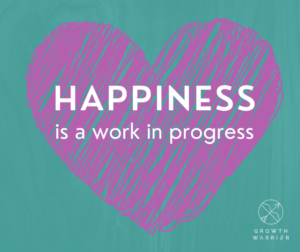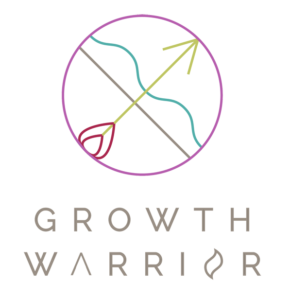We can pursue happiness with intention. Here are some thoughts on how to raise your happiness set point.
* * * * *
Happiness is a thing!
In addition to the traditional self-help industry, happiness has become its own field of study (positive psychology) with a whole industry of gurus and experts trying to help us become shiny happy people. It’s amazing to see how much the field has evolved since Martin Seligman from my alma mater, UPenn, began expanding upon the seminal work of Abraham Maslow.
While I’m all for happiness (who isn’t?), what does this really mean in practice and how can it be translated for our work and purpose in the world? I was invited to consider this question and found myself motivated to go deeper on this topic as it dovetailed nicely with other areas I’ve been reflecting upon in my own life.
In short, we all have a happiness set point, or baseline around which we are likely to stay throughout our life. While specific events, like a promotion or vacation or other positive experience can raise our level, and negative events, like the loss of a job or loved one can lower it, these are often temporary changes. We then return to the status quo and life as we know it.
So how can we make ourselves quantifiably happier? Gretchen Rubin wrote a whole book, The Happiness Project, about her efforts to enhance her life over the course of a year, measuring her success. This is a great approach for the quant jockeys and data geeks who love a good spreadsheet and have lots of free time to track and assess their performance.
|
|
Raising the Bar
For the rest of us, there may be other qualitative ways to tangibly change our lived experience. And of course, I’m a transformational coach, so I aim to do this work on some level with all of my clients – to increase their fulfillment around whatever is meaningful for them. It’s not just about getting a salary increase or promotion, which are always nice, but more about having more of what matters in our lives. This involves shifting our focus to become more authentically aligned with who we are, how we want to live and what we care about. Here is an initial place to start.
Notice what brings you down and decreases your happiness.
If you’re like me and most of my clients, comparing yourself or worrying what others think drives us to try to keep up with the Jones. You may also understand the toll these worries and behaviors take on our happiness. It’s not that we don’t want others to be happy, but sometimes seeing their happiness makes ours seem less happy, relatively speaking. You know that FOMO thing rears its ugly head.
BEING ENOUGH
We will never feel like we are enough or have enough when we’re constantly looking outside ourselves at what others have. And of course, outward appearances are imminently deceiving. Just like “natural flavors” on ingredient lists hide crappy fillers they’re afraid to name because then you wouldn’t eat them and social media profiles that have been curated to perfection. What we see isn’t always what’s really going on.
Having aspirations is actually healthy until they lead us to berate ourselves for what we don’t have which can lead to a downward spiral of self-loathing, shame, guilt and/or regret. These feelings do not induce happiness, but scarcity and lack.
The solution = returning to the present moment. Dropping the coulda, shoulda, wouldas and doubts that dog us. Shifting into gratitude and appreciation for what we do have and becoming more grounded in ourselves helps us take positive actions to create more of what we want.
A goal for me this month has been to notice the ways I inadvertently make myself unhappy. Then flip them around to use this important information to guide me in my own progress.
Here’s my plan. Feel free to borrow my playbook.
- Notice when I start to compare, complain or otherwise distract myself by focusing on other people’s stuff.
- Pause to become more aware of my thoughts in the present moment.
- Ask if focusing on the negative makes me unhappy. If not, ignore. If yes…
- Turn around the critical thoughts to appreciate and celebrate all that I do have.
- Get curious about what’s really going on.
- Consider what the comparing is about. What interests and could inspire me?
- Find the underlying motivation to help me see the opportunity and shift into the positive potential.
I’m ready to stop the Comparison Critic from ruining my day or moment by not letting it take me down. I also know that vigilance will be required as my attention around this slipped just a day ago:) While this shouldn’t become its own form of stress, bringing more mindfulness to our thoughts is an effective way to notice the underlying stories we tell ourselves. Changing our internal messaging is the key to shift our overall experience from criticism to inspiration, negativity to positivity, unhappiness to awareness.
Replace the Impostor with the Real Deal!
Our tendency to compete, keep up, get ahead, push forward, do more, achieve and outperform others are simply reflections of our capitalist culture. You know the drill. However, perfectionism, self-judgement and criticism are harsh punishment for our simple human selves. We are ready for a new paradigm. Quieting the critical internal voices and replacing them with kinder, gentler, more supportive inner coaches who inspire us, congratulate us and help us find more happiness.
Let me know whether this resonates and how you might explore finding more happiness. Can you make progress shifting your inner critic into your best friend? If you might benefit from having a neutral and caring voice guide you to navigate this process with more ease and support, you know where to find me.
CONTACT US FOR A COMPLIMENTARY STRATEGY SESSION




